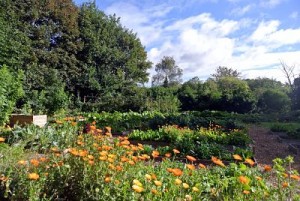 I heard a very interesting programme on volunteering this week. This is something I have been mulling over for sometime and this programme covered much of what I have been mulling over. Bank of England Chief Economist Andy Haldane who made the programme looked at the economics of volunteering but interstingly did not major on this. He felt it was curious though that elements of the black economy such as drug dealing and prostitution are included in UK economic figures, but not volunteering.
I heard a very interesting programme on volunteering this week. This is something I have been mulling over for sometime and this programme covered much of what I have been mulling over. Bank of England Chief Economist Andy Haldane who made the programme looked at the economics of volunteering but interstingly did not major on this. He felt it was curious though that elements of the black economy such as drug dealing and prostitution are included in UK economic figures, but not volunteering.
In the UK 15 million people volunteer in a regular basis and this is worth an estimated 50-100 billion to the economy. The people who take part in volunteering come from every age, race and class. I am one of these people. There a number of questions that I would want to ask about volunteering. Does it remove economic activity from other parts of the economy? i.e. do we replace something else? Does it replicate state activity (i.e. replace it), so it is it a way of cutting public expenditure back? How do you manage volunteers? And what motives do we have for doing it -this is of particular interest to Christians. Looking at my volunteering experience I will attempt to look at these questions some of which were raised in the programme above.
I have volunteered in the past for a growing project on unused land (picture above). Many of those involved those with this project had mental problems. (Much research suggests that gardening is very good for those with poor mental health.) I currently volunteer with our churches homelessness project. On the replacement question the answer must be in some cases yes. But this by and large does not bother me. The garden project ended up running a couple of cafés and I think a shop, so in this case people using these and purchasing food where not buying it somewhere else from a more commercial operator. So what- in macroeconomic terms this will make little difference. It might however affect the micro-economy. The opposite is true for our homelessness project. We are not replacing anything, we offer a meal on a Saturday night which almost no one else was and do so we purchase more food than would otherwise be bought. A few years ago the church eco group thought of setting up a project where we would insulate peoples roofs. In the end for various reasons it did not go ahead. Some of us did have a concern we were putting people of of work. Of course there is one other aspect of this, by volunteering we are not doing something more economically useful? Very difficult to quantify.
The second charge of replacing cut services with volunteers is a much more serious charge. This was raised in the programme and the unions have obvious concerns. I would oppose volunteers taking over public services; partly since you are putting people out of jobs, partly since its unlikely that we can run them to the same scale as the state or as well. In 2010 David Cameron raised the idea of volunteering and called it the big society. Even his own voters treated it with extreme suspicion for the same reasons as above. Where I see volunteering and the state is the volunteers doing thing the state cannot. Such as our homeless meal.
The question of how do you manage volunteers is an interesting one, but not to me in my situation. The beauty of my leading the cooking on the homeless meal is how fantastic my fellow volunteers are. They require very little in the way of management.
The final question was interestingly raised in the programme. As a Christian I have pondered this. When I am in charge of the cooking at home time and later I feel a great sense of pride and satisfaction of having catered for 120 guests and 30 volunteers. Less so when I help and others are leaving. Am I wrong to feel this? Should I recognise this as being down to God? Does it affect me wanting to do the volunteering? These are still questions I am working through but in the meantime I see volunteering as having a role in any society. Its also a good reason for a citizen’s income.
One in the occasional series on alternative economics.
Neil
